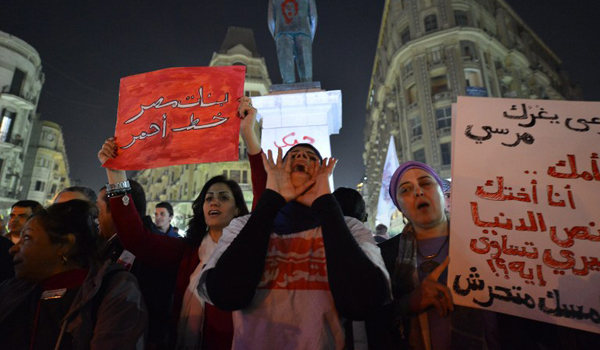CAIRO: Warda takes me by the arm and leads me into a room filled with computers. “We haven’t got many she said, “we’re lacking the resources of a big television or news company, but we’re getting by ok.
Warda Riad Riji El-Anqa is the station manager at the Al-Aqsa television station in Gaza. Set up one year ago as Hamas’ answer to Fatah’s “Palestine Television, Al-Aqsa has achieved notoriety in the international media and government circles for its portrayal of a politicized Mickey Mouse. But despite global attention, it remains a small station, restricted by its location and external political pressures.
“We’re getting more cameras while the wall is down. They’re bringing them in from Egypt. At the moment we’ve got five but by next week we’ll hopefully have at least 50.
“When Hamas took over from Fatah, Warda tells me, “there was an order from Ramallah telling their employees to leave work immediately, but they carried on paying their wages.
Warda, dressed in a long beige veil and brown abaya, explains that no one was expecting Hamas to win the 2005 elections, least of all the Palestinian people. “It was a real earthquake, especially for America and Israel; they assumed that Fatah would automatically clinch the election result. They totally underestimated Hamas’ popularity.
According to Warda, a softly spoken, well-educated Palestinian in her late 20s, the siege came as a last ditch attempt to break Hamas’ power in the Gaza strip. “They have exhausted all other avenues. In my opinion they are following a policy of political incompetence.
“They killed religious leaders like Sheikh Yassin, and life continued. They sent over rockets and raids by air, and life continued, and now they have cut off electricity. But we found ways around this, and life has continued.
For all Palestinians, the blowing up and subsequent collapse of the iron wall, which has cut them off from the world on a thin sliver of land since 1967, was a triumphant exhale after years of frustrated isolation. Warda is no exception. “We were dying in silence and suddenly we can speak to the world, we can tell our story.
Her words, spoken with wise composure, do not portray the character of someone whose recourse is solely fundamentalism, but reveal deep political acumen.
“Did you know that it was reported by an Israeli journalist that they wanted to blow up the media centers in Gaza. They were thinking about it, but they didn’t go through with it.
Whether this is true or not remains to be seen. Warda could not tell me the specific source for this claim. But rumor or not, she is very aware of Al-Aqsa’s political implications. The emphasis placed on the media drives home the extent of the role they play in this geo-political conflict, where emotions can be gauged and guided by picture and sound.
“We went around the hospitals, as if we were visitors just looking round. They have had no electricity for days. The premature children have no oxygen for their tanks so doctors have to attach masks and pump in oxygen by hand. Staff at El-Shafa Hospital were in tears at one point, because there was no gas to send an ambulance to a woman giving birth.
Warda has archives of children found in Palestinian hospitals, some hit by shrapnel, others suffering from curable illnesses rendered untreatable by the conditions in Gaza. If this is what is aired on national television, it’s no wonder that Al-Aqsa is giving its fellow news stations stiff competition for viewers.
Before I leave the station, I realize that Warda hasn’t once asked my about my religious affiliations, something I’d become quite used to. Instead she looks at my headscarf, and asks, “Did they make you wear that. I don’t like that, they shouldn’t have. This is an obligation of our religion. It shouldn’t be forced on you.

